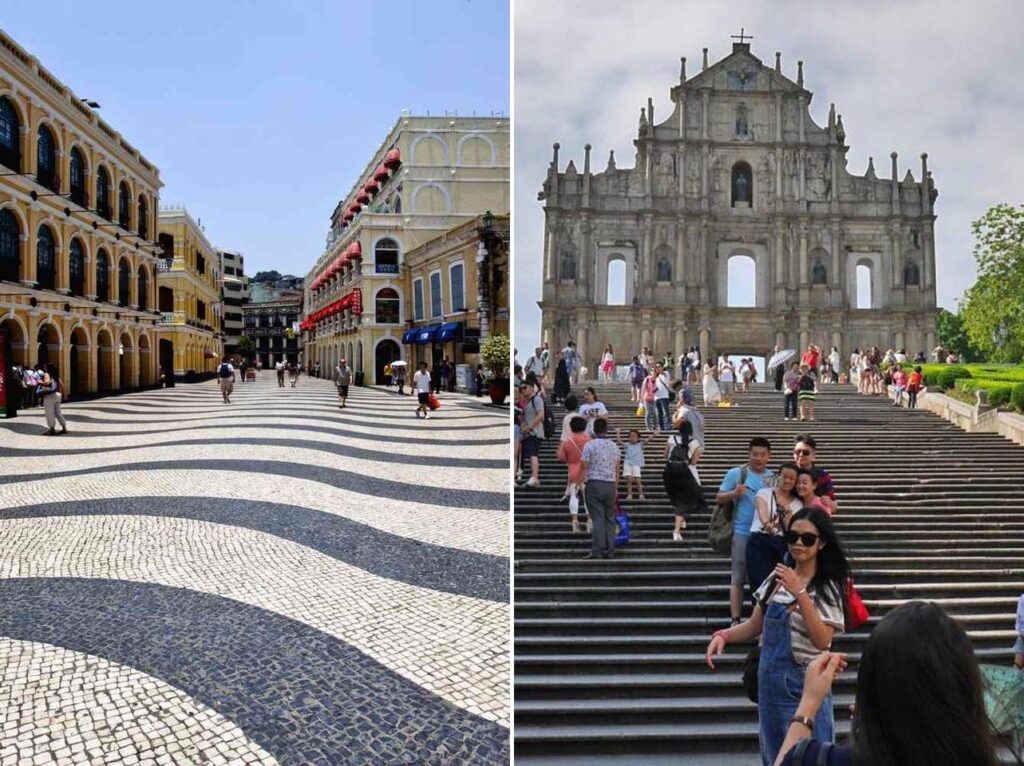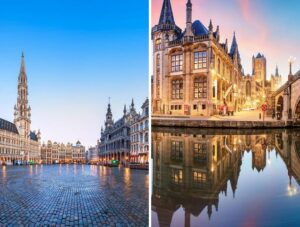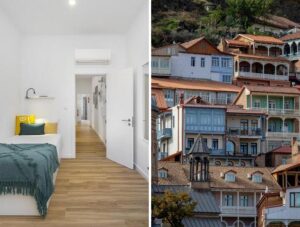Discovering Macao: A Journey Through Its Portuguese Heritage

Macao, often recognized as Asia’s gambling hub, holds a rich tapestry of history and culture that extends far beyond its renowned casinos. While the city is famous for its baccarat tables, a deeper exploration reveals a vibrant Portuguese legacy that continues to thrive amidst its modern skyline.
A Glimpse into Macao’s Past
The Portuguese influence in Macao dates back to the 16th century when it became a crucial trading post in Portugal’s global empire. This historical connection is still evident today, particularly in the city’s architecture and cuisine. Walking through Lilau Square, one can easily be transported to a quaint Lisbon neighborhood, with its whitewashed buildings and iconic ‘calçada’ tiles. The square’s fountain, steeped in local legend, suggests that those who drink its water will inevitably return to Macao—a sentiment echoed by many who find themselves repeatedly drawn to the city’s unique charm.
Beyond the Casinos
While Macao’s reputation as a gambling powerhouse is well-deserved, with nearly €25 billion in gambling revenue in 2024, the city’s cultural heritage offers a compelling narrative. The Ruins of St. Paul’s, a 17th-century Catholic church, stand as a testament to the city’s colonial past. Nearby, the Pátio do Espinho neighborhood provides a glimpse into the lives of the Japanese Christians who once called it home. These historical sites, along with the cobblestoned alleys of Senado Square, offer visitors a chance to step back in time and experience the enduring Portuguese influence.
Culinary Connections
Macao’s culinary scene is another area where Portuguese heritage shines. Traditional dishes like ‘bacalhau à brás’ and grilled sardines are staples in local restaurants, reflecting the city’s deep-rooted connection to Portuguese cuisine. In the St. Lazarus district, innovative restaurateurs are breathing new life into this culinary tradition. Establishments like Albergue 1601 and 3 Sardines offer both classic and modern interpretations of Portuguese dishes, creating a vibrant dining experience that honors the past while embracing the present.
Preserving a Unique Heritage
Despite the rapid modernization and economic growth following Macao’s handover to China in 1999, the city’s Portuguese legacy remains a vital part of its identity. From the language spoken on the streets to the architectural details of its buildings, Macao continues to celebrate its multicultural heritage. This blend of cultures not only enriches the experience for visitors but also provides a sense of belonging for Portuguese residents, ensuring that this 400-year-old connection endures.
Macao’s story is one of cultural fusion, where the echoes of its Portuguese past resonate through its streets, cuisine, and traditions. For those willing to look beyond the baccarat tables, Macao offers a rich tapestry of history and culture waiting to be discovered.









